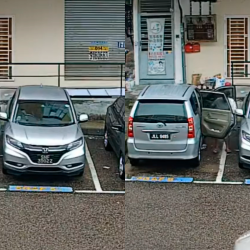Cabinet refers proposed review of GP fees to council

KUALA LUMPUR: The Cabinet wants the proposed review of the consultation fees for private general medical practitioners to be discussed by the National Cost of Living Action Council (Naccol) before any decision is made.
Health Minister Datuk Seri Dr Dzulkefly Ahmad (pix) said the proposal was tabled to the Cabinet for approval on April 24, after the ministry took note of the difficulties faced by private general medical practitioners in dealing with the rising overheads and costs to continue offering their services to the public.
“While giving fair consideration to the proposal for a review of the consultation fees, the Ministry of Health (MOH) has also taken into account the views of various quarters, including consumers’ associations and employers from numerous sectors of industry.”
The minister said this in reply to Charles Santiago (PH-Klang) who wanted to know the actions taken by the ministry to standardise the consultation fees for general medical practitioners at public and private clinics.
He said a town hall session involving the private general medical practitioners and other stakeholders had also been held on Aug 27, 2018.
Dzulkefly also dismissed claims that hundreds of private clinics have close because the government failed to raise consultation fees for GPs.
He said a check by his ministry revealed that of the 889 clinics that have shut down since 2015, only 115 were force to cease operations for financial and economic reasons.
“That translate to only 13% of the total,” he said in response to a claim by Santiago that GPs were having trouble sustaining their clinics because of the low consultation fees.
Consultation fees at private clinics have not been raised for 27 years.
The government has recently decided to raise consultation fees at clinics to be on par with that at hospitals.
Currently GPs charge RM10 to RM35 for a visit, but at private hospitals the fees are RM30 to RM125.
Dzulkefly said his ministry would also look into claims that the involvement of medical third-party administrators (TPAs) in managing claims have led to increased costs for GPs.
It was recently reported that delayed payments and processing of claims by TPAs, or middlemen enlisted by corporates to handle payments for their employees’ health bills, have left private clinics cash strapped.
Dzulkefly also said the MOH is finding a strategic approach to expand in phases the implementation of Electronic Medical Record (EMR) System to all hospital and health clinics nationwide.
“So far, the EMR System has been implemented at only 35 out of 145 public hospitals and 118 out of the total 1,703 government clinics are using Hospital Information System (HIS) and Clinical Information System (CIS),” he said in reply to William Leong Jee Keen (PH-Selayang) supplementary question.
Leong had wanted to know the development of the EMR System implementation at hospital and health clinics nationwide.
Through the EMR System, patients’ medical records can be accessed at any hospital or clinic for treatment purposes by taking into account the need to maintain patient confidentiality.






